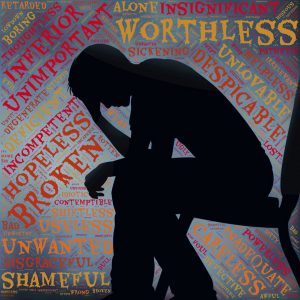 I was stunned this week when I saw the headline. Kate Spade dead at age 55. This designer of the purse I carry to work every day, ended her what appeared to be successful life. And the age old question is WHY? What causes a person to decide they cannot go on and prefer to die?
I was stunned this week when I saw the headline. Kate Spade dead at age 55. This designer of the purse I carry to work every day, ended her what appeared to be successful life. And the age old question is WHY? What causes a person to decide they cannot go on and prefer to die?
At present, there is much speculation about Kate Spade’s death. TMZ reports that she fell into deep depression and had marital problems. She was separated. A suicide note was left for her 13-year-old daughter which reportedly said it had nothing to do with the daughter, but that the daughter could ask her dad about the why. If true, this is a lot for a 13-year-old to handle. Pray for her!
Even when a note is left, it doesn’t really explain the decision to end it all. Questions linger among those left behind. For loved ones, questions center on why did the person see no other solution than to die? Yes, they might have been depressed, felt despair, overwhelmed and more, but why did they feel they had die? According to CBS news, Kate’s dad talked to her the night before her death and found her happy, planning a trip, and doting on her daughter. Her sister and husband, however, reported that Kate suffered from depression and anxiety.
I don’t pretend to know the answer to the question as to why some people decide suicide is the answer, but those that have made unsuccessful attempts often say they didn’t so much want to die, they wanted to stop living. In many cases, they want the pain to stop, the problem to end or to find a way out.
One of the leading causes of suicide is depression. In fact, when we assess for depression, we always ask about suicidal thoughts, plans or attempts. A previous attempt places a person more at risk. Depression is characterized by negative thinking, sad and depressed mood which can lead to suicide. And when depression is hidden, a person is more at risk. So asking about suicidal thoughts or plans actually decreases the risk of attempt.
In some cases, suicide comes at the hand of someone who is suffering from psychosis. There are voices in their head telling them to end their life when psychosis is in play. This type of mental illness can torment a person to take their own life.
Another contributor to suicide is impulsivity often brought on through the use of drugs and alcohol. Once out of an altered state, a person is usually remorseful for thinking of suicide. Yet, when altered, that inhibition can be lifted. People do things in an altered state they would not do when sober.
Some people make suicide attempts as a cry for help. Something is wrong and they don’t know what to do. A suicide attempt signals the pain and hopefully brings help. Yet, in some cases, the cry for help is lethal and ends in death.
Those suffering from a terminal illness and who have lost all hope may consider suicide. They want to control the end of life and decide to do it at their own hand.
Whatever the reason behind the action, most people do not let on that they are going to kill themselves. The decision can be made in advance or minutes before the behavior occurs. And this is one of the toughest parts of losing someone to suicide. You just don’t know that they will do it. We do know that people are at higher risk when they have depression, psychosis or anxiety, when there is a significant loss, personal crisis, or significant stress.
If you hear someone talking about death, take them seriously. If you notice they have means, take that seriously. If someone feels helpless, hopeless, or trapped with no way of escape, take that seriously. And if you hear statements about self-worth related to self-loathing, pay attention. Distress is at play and the person needs help.
The National Suicide Prevention Lifeline is 800-273-TALK. Counselors are available 24 hours a day, 7 days a week. The service is available to anyone. All calls are confidential.
Ultimately, suicide is based on a lie that there is no hope, no way of escape, no solution to life’s problems. Yet, we know that while we suffer and have emotional and physical pain, God promises His peace and presence. Hope in Him is the strongest prevention.


